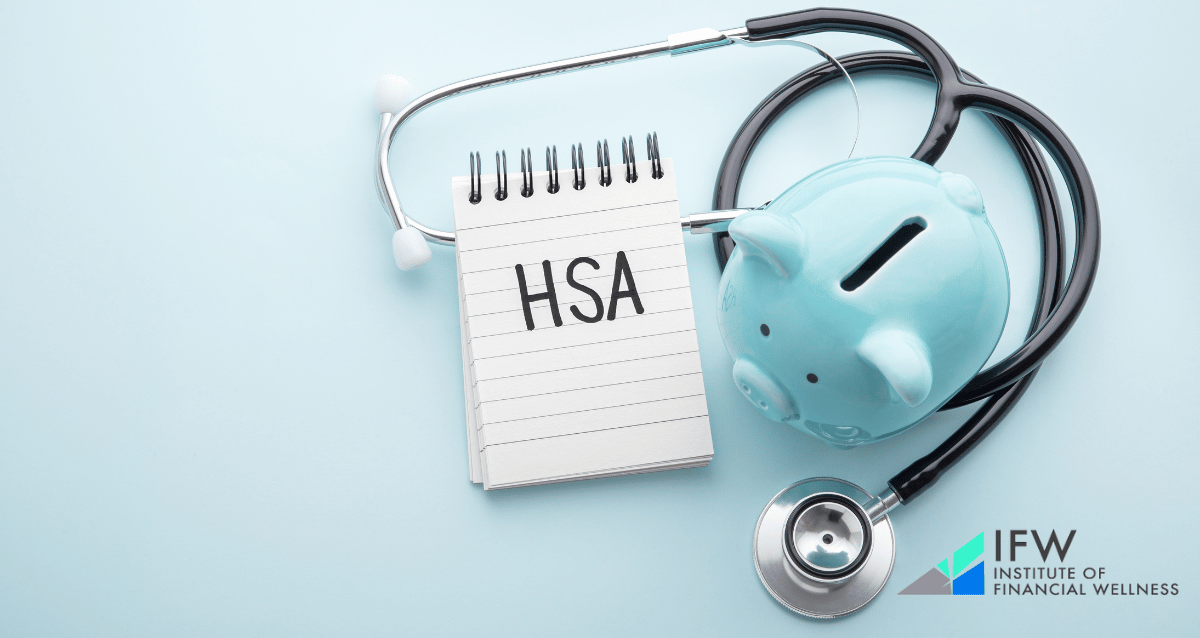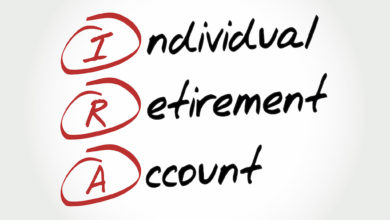How to Manage Healthcare Costs in Retirement

How to Manage Healthcare Costs in Retirement
Retirement should be an enjoyable time after years of hard work, but rising healthcare costs can put a dent in your nest egg. As such, it is essential to manage these expenses carefully and make informed decisions for the future. Buckle up! We will provide insight into health care costs associated with retirement as well as helpful strategies to keep those bills at bay so you are able to relax without worrying about finances during this stage of life.
Key Takeaways
- Understand the components of health care costs in retirement to plan and budget effectively.
- Maximize Health Savings Accounts (HSAs) for medical expenses, premiums, and long-term care costs.
- Evaluate insurance plans, providers & alternative funding options. Engage in preventive care to reduce healthcare costs.
Understanding Health Care Costs in Retirement
Elements such as average expenses, premiums, out-of-pocket payments, and long-term care need to be considered when planning budgets or savings goals.
Careful consideration of all components related to health expense management during this stage can help ensure financial stability later on down the road.
Average Cost of Healthcare in Retirement
According to estimates, an average annual expenditure on medical services can range from $156,000 up to over a million dollars, depending upon factors such as geographical location and one’s overall well-being [1]. It should be noted that healthcare rates increase more quickly than inflation, which ought to be taken into account when budgeting for long-term retiree expenses.
An example might include giving 70% percent of lifetime Social Security income towards medication in 2023 if two people aged 65 were about enter their golden years together. Utilizing government programs like Medicare alongside careful saving would alleviate potential financial issues related to these types of services down the line.
Premiums and Out-of-Pocket Expenses
When it comes to healthcare costs in retirement, two different categories come into play: premiums and out-of-pocket healthcare expenses. The former are fixed payments for insurance coverage, whereas the latter can vary according to your needs and plan. For example, a male/female couple with life expectancies of 87/89 may need more than $662K for supplemental insurance as well as other future medical costs over their lifetimes.
To manage these expenses effectively, one must stay cognizant of Modified Adjusted Gross Income (MAGI) levels, which could trigger an IRMAA surcharge on Medicare Parts B & D if they exceed certain thresholds. Strategically converting funds from a Roth IRA is one-way individuals have control here that helps lower overall expenditure when it comes to covering healthcare costs during retirement years.
Long-Term Care Costs
In terms of financial burden, long-term care costs during retirement can range from $4,000 for an assisted living facility to up to a staggering amount of nearly $9,034 per month for a private room in a nursing home with specialized medical services.
It is essential that individuals plan and prepare ahead financially so they are able to secure enough money should these expenses arise later on. Daily aid such as bathing or dressing may also be included in this type of assistance, along with providing other health needs, including more advanced types of treatments involved.
Maximizing Health Savings Accounts (HSAs)

This type of tax-advantaged account features the potential to earn tax-free income and receive deductions on contributions made.
Funds from these accounts may then be used towards paying for qualified medical expenses such as Medicare premiums or even long-term care needs. Utilizing an HSA in this fashion could enable one to maximize their savings when it comes time to use them in later years while still receiving its various advantages.
HSA Eligibility and Contributions
To be eligible for a Health Savings Account (HSA), there are certain criteria you must meet, such as having coverage from a High Deductible Health Plan (HDHP) and no other health insurance.
Both employers and individuals can make tax-deductible contributions, either on their own or together, towards the HSA account. Bear in mind that having Medicare means no additions to an already existing HSA fund. Still use it towards qualified medical expenses during the retirement period if needed.
Medical Expenses in Retirement
HSA funds can be used to pay for a range of medical costs in retirement, such as Medicare premiums and long-term care expenses. Those withdrawing the money before 65 for something other than qualified medical needs will face a 20% penalty charge [2].
By strategically managing these HSA funds towards necessary healthcare fees, you’ll have better financial stability post-retirement.
Qualified Medical Expenses
These qualified expenditures consist of numerous services such as dental work, hearing aids, and certain health insurance premiums. Understanding which types of care are included under this plan allows you to take full advantage when utilizing funds contained within the HSA, with the ultimate aim being a decrease in overall healthcare outlays during your later years.
Navigating Medicare Options

It’s important to recognize that each option offers a different level of protection along with various expenses associated with it; making sure you make an informed decision will be hugely beneficial in reducing your long-term medical bills throughout retirement.
For instance, original Medicare includes hospital care insurance (Part A) as well as doctor visits/medical procedures coverage (Part B). On top of this, additional plans like Medigap exist, which offer extra support such as out-of-pocket cost reimbursement beyond what’s covered by Part A & B whilst providing greater flexibility on where providers are selected from due to their private nature.
Original Medicare vs. Medicare Advantage

Original Medicare, which is administered by the federal government and comprises Part A (inpatient/hospital services) plus Part B (outpatient coverage), can be contrasted with Medicare Advantage. Offered through private insurance firms, it offers identical coverage as Original Medicare – usually coupled with extra benefits such as prescription drug provisions, oral care treatments, optical attention, and hearing aid solutions.
When deliberating between them both, one should assess their respective offerings in terms of protection given along with costs incurred. Including Advantages supplied to help make an informed decision regarding healthcare needs post-retirement period.
Medigap and Prescription Drug Coverage
Supplementary insurance, such as Medigap plans, helps to cover the out-of-pocket costs associated with Original Medicare.
This includes things like coinsurance and deductibles but does not typically include prescription drug coverage, which is provided separately through Part D of Medicare. Consequently, in order for an individual to have complete health protection, they may need both a Medigap plan plus enrollment into a standalone Part D policy that will cater specifically to their medication needs so they can better manage their expenses related to healthcare bills.
By understanding how the roles of each type of coverage operate within your overall medical strategy, you are taking steps towards making well-informed decisions about your care while closing any gaps left by original medicare provisioning and controlling those inevitable extra costs outside regular billing rates.
Early Retirement Health Care Choices

Retirees who are not yet eligible for Medicare need to find a suitable health insurance plan in order to manage their healthcare costs during retirement.
Examining the different options available, such as employer-provided coverage, COBRA, ACA Marketplace plans, and spousal policies, can help ensure they have adequate protection until they become qualified for Medicare. Knowing the pros and cons of each is essential when making an informed decision that meets their individual needs while controlling expenses related to healthcare in retirement.
Employer-Provided Insurance and COBRA
When it comes to health insurance, early retirees have two potential options: employer-provided coverage and COBRA. Employer plans are often more cost-effective, but with COBRA, individuals can maintain the same plan for up to 18 months after leaving a job or having a significant life event occur.
It is important that they compare the costs associated with each option before making an informed decision, as the premiums of the latter tend not to be subsidized like those provided by employers usually are.
Affordable Care Act Marketplace and Spousal Plans
The Affordable Care Act Marketplace provides a range of insurance plans for those in early retirement, with tax credits available based on income.
These cover medical care, dental, and vision requirements, as well as other possible options that can assist until Medicare eligibility is reached. Spousal plans offered through their partner’s employer could also be beneficial for retired persons needing additional coverage to meet health care costs.
Researching the benefits and cost comparisons between all possibilities allows one to find the most suitable plan that covers necessary healthcare while still protecting financial well-being during this phase of life.
Strategies to Lower Health Care Costs in Retirement

Managing healthcare costs in retirement is essential to maintain financial security. To achieve this, adopting healthy habits and utilizing preventive care are important strategies. Also, assessing available insurance plans and providers can help contain rising healthcare expenses while preserving retirement savings.
Staying Healthy and Preventive Care
In retirement, one’s health is essential to avoid high healthcare costs. Maintaining a healthy lifestyle and following physicians’ recommendations can lead to reduced need for medical treatments and overall expenses.
Preventive care like check-ups, screenings, and immunizations help identify any potential issues early on, which increases the likelihood of effective treatment while reducing associated fees.
Evaluating Insurance Plans and Providers
When looking for the best health insurance plan in retirement, it is important to compare coverage and costs before making a decision. Consider factors such as the value of the policy, choice of providers, company reputation, and stability, along with premiums needed for deductibles, plus any out-of-pocket expenses that may arise.
Though having lower premiums sounds great at first glance, be aware this could result in much higher bills later on, so weighing up affordability versus good coverage should not be forgotten either.
In order to select an appropriate plan. Analyze what each has to offer, taking into account your particular healthcare needs as well as the services they cover, with care being taken when researching options prior to selecting one suitable both financially and physically, which can help protect you fiscally during retirement times.
Planning for Long-Term Care Expenses

As part of retirement planning, long-term care expenses should be taken into account as they can deplete savings and negatively affect overall financial health.
These services range from $8,000 per month for specialized care to a lesser amount.
To ensure that the necessary funds are available to cover these costs and maintain an ideal retirement lifestyle, it is beneficial to explore long-term insurance plans like Medicaid or alternative financing options before making any decisions.
Long-Term Care Insurance
It is usually better to obtain long-term care insurance while in one’s 50s or early 60s, as premiums for this coverage can become very costly if you wait until your 60s. This will help secure financial security and give retirees peace of mind, knowing that they have a plan when it comes to paying for extended health care services.
For those who opt into purchasing these plans earlier on, the benefits far outweigh any costs associated with them, so make sure you investigate thoroughly before making an informed decision about what’s best for your situation.
Medicaid and Alternative Funding Options
For those without private long-term care insurance, Medicaid and other funding options such as annuities or hybrid policies can be a way to cover expenses.
This government-funded health program assists low-income people with their costs for home-based services, nursing homes, and assisted living facilities. One may be able to find adequate resources during retirement in order to pay for necessary long-term medical assistance. By investigating the benefits of each option available, it is possible that all needed coverage will ensure financial security while ensuring quality healthcare plans are in place throughout later years of life.
Institute of Financial Wellness

The Institute of Financial Wellness is a great way to help you prepare financially for your retirement. They offer personalized financial planning and advice, as well as comprehensive resources to give guidance on managing healthcare costs during this important period.
Their network encompasses multimedia components such as educational materials and custom-built services around each individual’s needs and goals – all designed with the purpose of enabling individuals to boost their retirement savings while minimizing taxes when possible. The access provided by the institute gives users valuable information about how to handle healthcare expenses in an efficient manner throughout one’s golden years.
Full Summary
It is essential to understand and actively manage healthcare costs during retirement in order to protect one’s retirement savings and be enabled to live the desired lifestyle, as well as enjoy a carefree golden age.
Maximizing Health Savings Accounts as well as exploring Medicare options will help lower health expenses while identifying coverage for early retirees helps prepare for long-term medical costs. With this informed approach towards managing healthcare expenditures throughout the life of your retirement, you can make sure all necessary resources are available when needed most.
Frequently Asked Questions
How much does the average person spend on healthcare in retirement?
According to Fidelity Investments’ 2022 Retiree Healthcare Cost Estimate, the typical 65-year-old couple retiring this year can anticipate shelling out an average of $315,000 for healthcare costs during their retirement years [3].
Are healthcare costs in retirement overwhelming?
When budgeting for retirement, the potential costs of health care must be taken into account. Fidelity estimates that a retired couple would need around $315,000 saved up to cover associated expenses – an amount that cannot be overlooked when planning out one’s future financials.
What percentage of income do seniors spend on healthcare?
In 2020, elderly people accounted for 37% of total healthcare expenditure, with female individuals spending 14% more than males per capita. Speaking, senior citizens commit 15% of their income to medical services, which is twice as much compared to when they were still working.
What are the main components of healthcare costs in retirement?
Retirees should anticipate incurring healthcare expenses, such as premiums, out-of-pocket costs, and potential long-term care costs. Average amounts for these expenditures need to be taken into consideration so that adequate financial preparations are made prior to retirement.
How can Health Savings Accounts help manage healthcare expenses in retirement?
Health Savings Accounts (HSAs) offer tax advantages and can help pay for various medical expenses in retirement, including Medicare premiums as well as long-term care costs, making it easier to manage healthcare expenditures during the senior years.
Evan Sussman is honored to serve as Senior Vice President for IFW. Evan has been a successful financial professional for over 17 years. On December 24th 2019, Evan was diagnosed with Stage 3 cancer, and is currently on the road to full recovery. He is forever indebted to the doctors, nurses, and staff that took care of him. Evan has dedicated his career to helping people secure their financial health and well-being.






